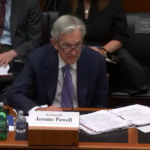 Over the past decade, California courts (both State and Federal) have struggled with the question of whether, and to what extent, a lender or loan servicer could be liable for negligence handling a borrower’s loan. Nowhere has this struggle been more aggressive than in connection with loan modifications. The California Supreme Court, in a hotly contested case (for which Wright, Finlay & Zak was pleased to submit an amicus brief on behalf of several industry groups) has just resolved that struggle in favor of the lenders and servicers.
Over the past decade, California courts (both State and Federal) have struggled with the question of whether, and to what extent, a lender or loan servicer could be liable for negligence handling a borrower’s loan. Nowhere has this struggle been more aggressive than in connection with loan modifications. The California Supreme Court, in a hotly contested case (for which Wright, Finlay & Zak was pleased to submit an amicus brief on behalf of several industry groups) has just resolved that struggle in favor of the lenders and servicers.
In the case of Sheen v. Wells Fargo Bank, N.A., (2019) 38 Cal. App. 5th 346, a borrower complained that its original lender had negligently handled his application for modification of his two junior lien loans back in 2010. In 2016, the borrower sued the lender; but the trial court granted the lender’s demurrer without leave to amend. On the borrower’s appeal from that judgment, the appellate court affirmed the judgment, definitively coming down on the side of the rule that a lender, acting in the normal course and scope of its business, should not be held liable under a negligence duty. Specifically, the court relied on Southern California Gas Leak Cases, (2019) 7 Cal. 5th 391 (“Gas Leak Cases”), noting that: “One fundamental consideration was that economic losses flowing from ‘a financial transaction gone awry’ are ‘primarily the domain of contract and warranty law or the law of fraud, rather than of negligence.”’… Here we have a financial transaction gone awry and nothing more: Sheen suffered neither personal injury nor property damage.” Sheen, supra, at 353-54. That decision placed a dire risk to the potential claims of consumers—and not just as to disputes over loan modifications.
Unsurprisingly, the plaintiffs’ bar, who handle such cases, were eager to eliminate such a serious threat to one of their favorite causes of action. A petition to the California Supreme Court followed and was accepted to address the following issue: “Does a mortgage servicer owe a borrower a duty of care to refrain from making material misrepresentations about the status of a foreclosure sale following the borrower’s submission of, and the servicer’s agreement to review, an application to modify a mortgage loan?” After extensive briefing, including several amicus briefs on each side, and vigorous oral argument, on March 7, 2022, the court affirmed the judgment.
Notably, the court concluded that there was no “special relationship” between a borrower and a lender or servicer in the loan modification context, nor could such a duty properly be imposed by invocation of the so-called Biakanja factors. Instead, the general rule remained, that: “a financial institution owes no duty of care to a borrower when the institution’s involvement in the loan transaction does not exceed the scope of its conventional role as a mere lender of money.” The court stated that there was no exception to that rule for loss mitigation as that process was within the scope of that conventional role. The court did acknowledge, though, that there might be circumstances where a lender did owe a duty to a borrower. But loss mitigation was not one of them.
Of potentially even greater importance, though, despite its earlier de-publication of an appellate decision which had been based on that very point, the Court held that: “[The Biakanja] factors are commonly employed to ascertain whether a court should recognize a duty, but are useful and appropriate for that purpose only in situations involving parties that are not in privity with one another.” [emphasis added.] Again, this has implications beyond just the loss mitigation area. The court found that mortgage loans did not share the special characteristics which warranted the rare departures from the economic rule applied in insurance disputes and professional liability claims; rather they were more akin to typical commercial contracts. The court also rejected the argument that the rule only applied where plaintiff was claiming defendant had breached a contract, since the assertion of a tort claim under those circumstances would interfere with the terms of the parties’ contract (here, the right to foreclose).
The court was not swayed by the argument that the rule should not apply at the loss mitigation stage, rejecting the claim that a borrower is then already in financial difficulty and was at the mercy of the lender or loan servicer, who might have incentives contrary to the interests of the borrower. The court pointed out that the reason the borrower was in that position was because of the existing contract terms which gave the lender those rights, so no exception was appropriate and one would constitute “a potentially enormous expansion of tort law.”
The argument that a duty needed to be imposed by the courts because “no other source of law addresses the harm that [he] identifies” fared no better. The court, quoting from the amicus brief WFZ filed, made clear that it believed that it was up to the legislators or regulators to create such a duty if they wanted one, noting that the lawmakers had already been actively doing so in recent years where they believed it appropriate to do so.
However, the court also stressed that it was not ruling on whether claims for misrepresentation or promissory estoppel could still be asserted in the loan modification context (the borrower had not asserted those claims) where facts existed to support them.
What Does This Decision Mean to the Loan Servicing Industry?
This was a major victory for the financial services industry (though the reach of the decision could extend well beyond that area), foreclosing the ability of plaintiffs to assert negligence claims wherever they arise out of a contract. While the ruling will not stop borrower’s counsel from asserting negligence claims, it should allow loan servicers to eliminate these types of claims at the Demurrer or Motion to Dismiss stage, without the need for expensive and time-consuming discovery and summary judgment or, worse, trial. In other words, less delay and less cost.






